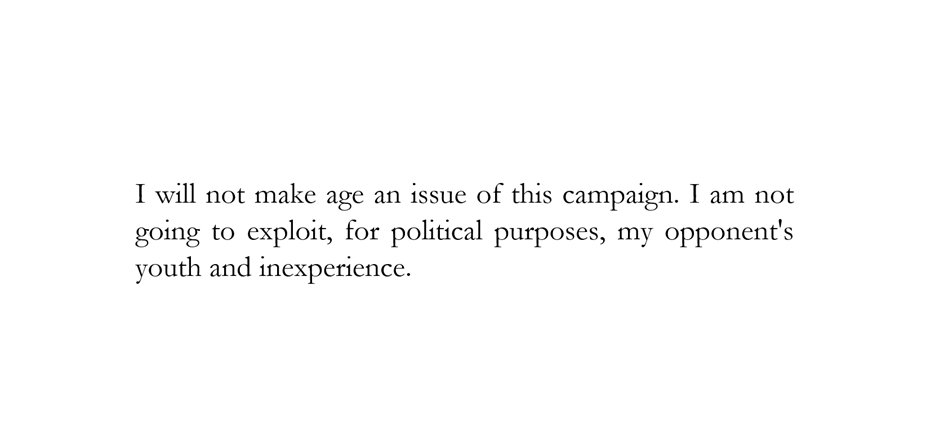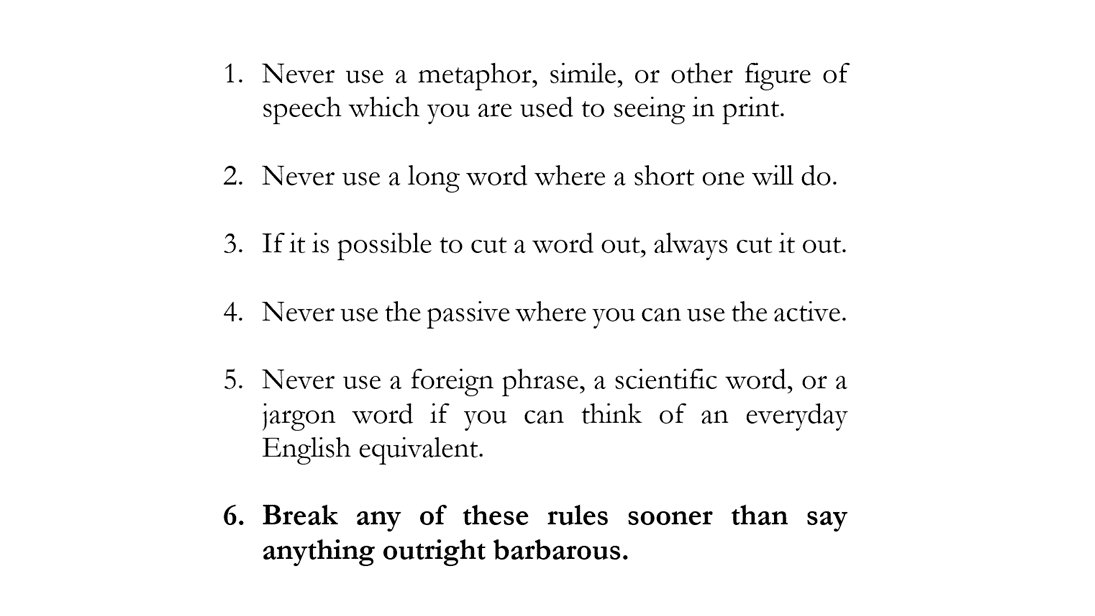Speak Better. 17 simple rhetorical tips to communicate more persuasively:

1. Authenticity In his treatise on rhetoric, Aristotle emphasises the importance of authenticity. Don't try and be somebody you're not. Don't change the way you speak - such as your accent - to suit the audience. Authenticity builds trust.

2. The Elements Aristotle also noticed there are three elements involved in a speech - the speaker, the subject, and the listener. And the last one is the most important: the listener influences what you're saying and how. Sounds simple, but this is easily forgotten.
3. The Five Stages of a Speech The great Roman orator Cicero laid out the five stages of a speech: -Invention (come up with the ideas/arguments) -Arrangement (decide what order to say them in) -Style (decide *how* you'll say them) -Memorisation -Delivery (give the speech)
4. Anaphora The repetition of words or phrases at the start of successive clauses. It builds a rhythmic, captivating momentum, and can be extremely memorable. The most famous example of anaphora, from Winston Churchill:

5. Control Breathing Pacing is perhaps the biggest challenge when speaking. But when you control your breathing, the pace will come naturally. If you don't breathe properly you'll start to deprive your brain of oxygen, you'll get nervous, and you'll lose control of pace.
6. Know Your Subject The Roman soldier and politician Cato the Elder said: "Grasp the subject, the words will follow." If you really know what you're talking about, then you'll be able to talk about it convincingly without a script.
7. Procatalepsis A rhetorical device in which you raise possible objections to your point and then address them. This allows you to take control of the narrative by answering potential criticisms before they've even been raised.
8. Aporia An of expression of doubt, real or feigned. This catches the audience off-guard and intrigues them. It can also set you up to overcome that doubt later on, thereby exceeding your audience's expectations. "To be or not to be, that is the question..."
9. Say Meaningful Things Dionysius I of Syracuse allegedly said: "Let thy speech be better than silence, or be silent." So make sure you say things that are worth saying. If you do that, people will *want* to listen to you. And if you don't, they'll stop paying attention.
10. Demystify Speaking Aristotle defines rhetoric as "the faculty of observing in any given case the available means of persuasion." There is nothing mystical about speaking. It is, as Aristotle explains, like any other skill. Treat it that way.
11. Apophasis Drawing attention to something by claiming you don't want to bring it up. Done badly it can seem cheap. But done well it can be an effective form of ironic criticism and even quite funny. Here's an example from Reagan, when he was 73:

12. Eutrepismus When you number and order the topics under consideration. Your audience will know what to expect and they can follow your arguments more clearly. Sounds obvious, but this device isn't used often enough.
13. Manners More important than any rhetorical or stylistic device. This isn't about being *nice* per se, but about knowing how to conduct yourself respectfully in a discussion. See George Orwell's sixth (and most important) rule for the use of language:

14. Persuasive Appeals Aristotle believed there were three "persuasive appeals" in rhetoric. These are different methods of convincing somebody: -logos (reason or logic) -pathos (emotion) -ethos (authority, expertise, or trustworthiness)
15. Epizeuxis The repetition of a single word (or phrase) in immediate succession. It's attention-grabbing, memorable, and hammers home your point. Should be used very rarely, for when you *really* want to make something clear. Like Taylor Swift or Tony Blair:

16. Type of Speech It's important to know what *type* of speech you're giving. Aristotle believed there were three: -Deliberative (urging a particular decision) -Forensic (debating a point of fact) -Ceremonial (praising or criticising a person or idea) Be aware of yours.
17. Antimetabole When words are repeated in successive clauses but their order is changed, forming a catchy A-B-B-A pattern and reframing ideas in your audience's mind. "All for one and one for all!" The most famous example, of course, comes from President Kennedy:

If you found this useful then you'll like my free weekly newsletter, Areopagus. Seven short lessons every Friday, including one about rhetoric. Make your week more interesting, useful, and beautiful.
getrevue.co/profile/cultur…
